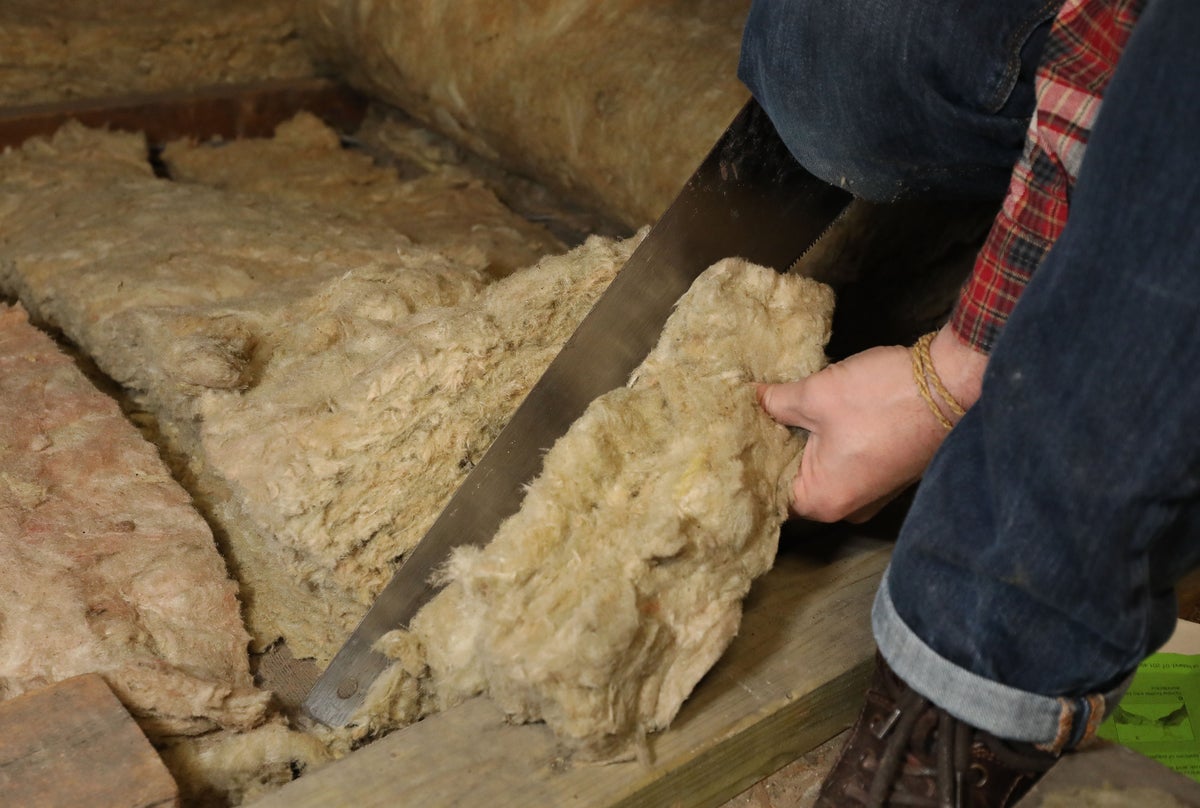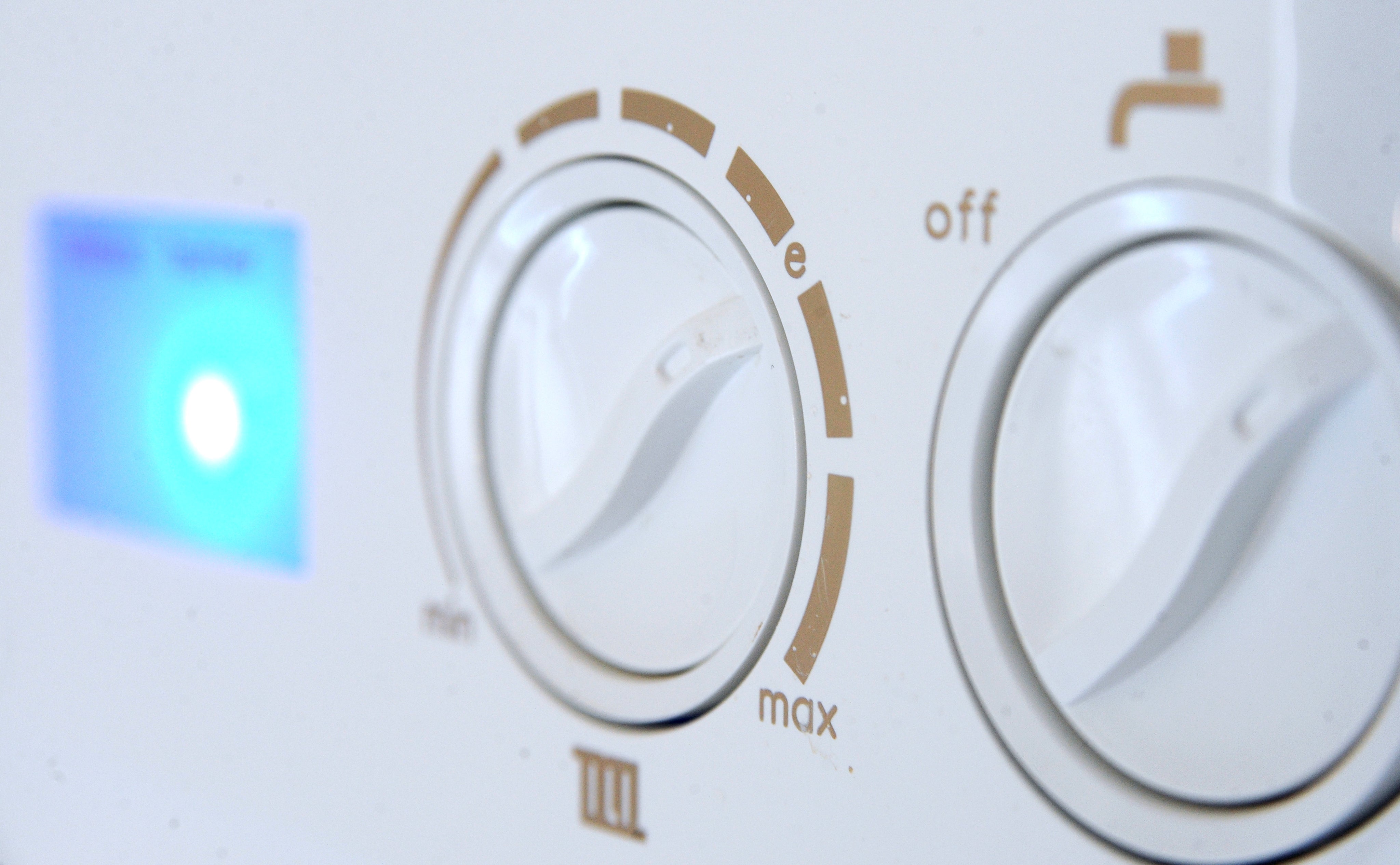
The Government is under increasing pressure to pour more cash into insulation as assessments show it could save billions in energy costs.
Researchers at the IPPR think tank said retrofitting England’s homes with good insulation and heat pumps could play a key role in “levelling up”, create millions of jobs and knock hundreds off household bills.
A business coalition, the Energy Efficiency Infrastructure Group (EEIG), has written to Chancellor Kwasi Kwarteng ahead of his mini-budget on Friday, urging him to invest £5 billion more to insulate UK buildings.
Energy efficiency is a triple win for the economy, energy security and boosting Britain’s health— Sarah Kostense-Winterton, EEIG
It comes as the Energy and Climate Intelligence Unit (ECIU) said the Government’s 2013 decision to cut support for home insulation means 10 million households have missed out on upgrades that would have cut their energy demand.
Had the improvements been made, it would have reduced bills, saving the Treasury and taxpayers around £9 billion in the first year of the energy price guarantee which caps household fuel bills to protect against soaring costs, and £18 billion over two years if prices stay high, ECIU said.
The IPPR has drawn up a 28-year plan, at an annual cost of £7 billion, to deliver energy-saving domestic upgrades across the country in a bid to ease the strain on people’s wallets and the environment.
They claim the move is “uniquely placed” to become “the cornerstone of the Government’s levelling-up strategy in England”, as those communities with the highest demand for installers tend to be current or former industrial centres and coastal communities outside London and the South East.

The IPPR said that all of England’s 24 million homes need upgrading, putting the country “far behind” European neighbours like Germany and France.
The UK is currently installing less than a tenth of the measures needed in its “cold, damp and leaky” housing stock to meet its net zero target, it said, with the pace of deployment required only increasing in the face of the “dire” energy price crisis.
The think tank said investing in its proposals for a multibillion pound retrofitting programme could save average households £430 per year when energy bills are capped at £2,500 this autumn, and sustain more than 1.2 million direct jobs and 1.5 million indirect jobs by 2050.
The scheme could create more than 61,200 new direct roles in the North East, equivalent to more than 5% of the total job market in the region, the IPPR said.

This would represent a significantly greater benefit than the boost seen in London, it said, with just short of 139,000 new direct jobs representing slightly over 2% of total employment in the capital.
A nationwide retrofitting programme needs measures including setting a date for phasing out the sale of oil and gas boilers, introducing a “one-stop shop” for financial support, launching a “massive national information campaign”, and boosting funding to local authorities to deliver schemes in their areas.
Luke Murphy, associate director for the energy, climate, housing and infrastructure team at the IPPR, said the move is a “no-brainer”.
It’s hard to think of another intervention that could deliver on so many objectives at the same time— Luke Murphy, IPPR
“This report shows that a national retrofit programme can deliver jobs and growth right across the country, and deliver levelling up at the same time. It would also lower energy bills, reduce energy demand and our dependence on (Russian President Vladimir) Putin, and lessen carbon emissions.
“It’s hard to think of another intervention that could deliver on so many objectives at the same time. It’s time the Government acted and invested to upgrade our nation’s homes, making them warmer and more affordable.”
The letter to the Chancellor from the EEIG, which includes the CBI and industry body Energy UK, says efforts to make homes more efficient could save £20 billion over the next five years, helping consumers and reducing government borrowing needed to cap energy bills.
Some £3 billion should be invested in a new energy efficiency scheme over the next three years to help insulate up to two million more homes, and a further £2 billion to “supercharge” existing programmes for low income households, they urge.
Sarah Kostense-Winterton, chairman of the EEIG, said: “Energy efficiency is a triple win for the economy, energy security and boosting Britain’s health.
“The Chancellor has an opportunity to invest to save the public purse billions of pounds through simple energy saving measures which can significantly cut household bills.”
A Business, Energy and Industrial Strategy Department (Beis) spokesperson said: “We wholeheartedly agree that retrofitting homes provides opportunities for economic growth and will help bring down household energy bills, which is why we are spending £6.6 billion in this parliament to improve energy efficiency of homes across the country.
“The majority of our ‘Help to Heat’ support is targeting those on low incomes and vulnerable households, which is benefiting tens of thousands of homes and delivering average savings of £300 a year on energy bills.
“Huge progress has already been made, with the number of homes with an energy efficiency rating of C or above at 46% and rising, up from just 14% in 2010.”







